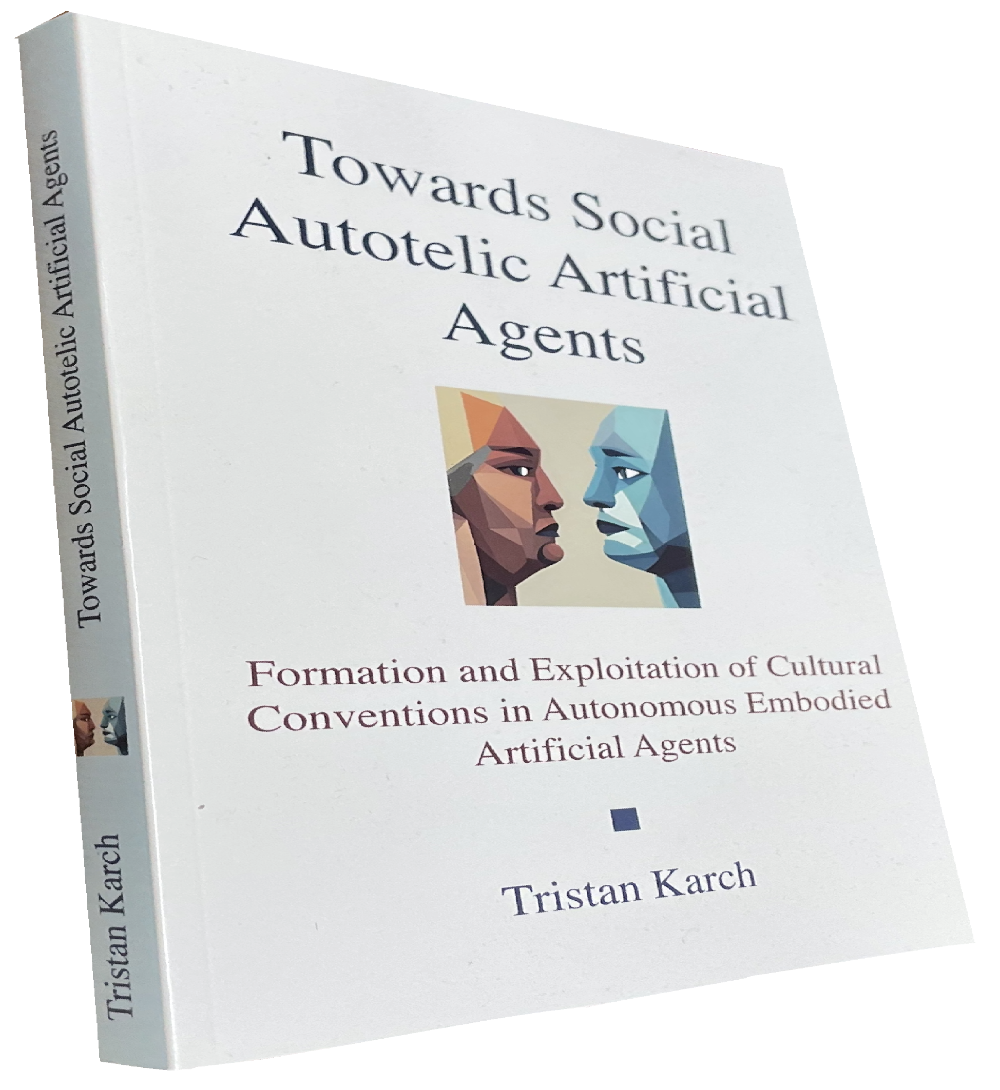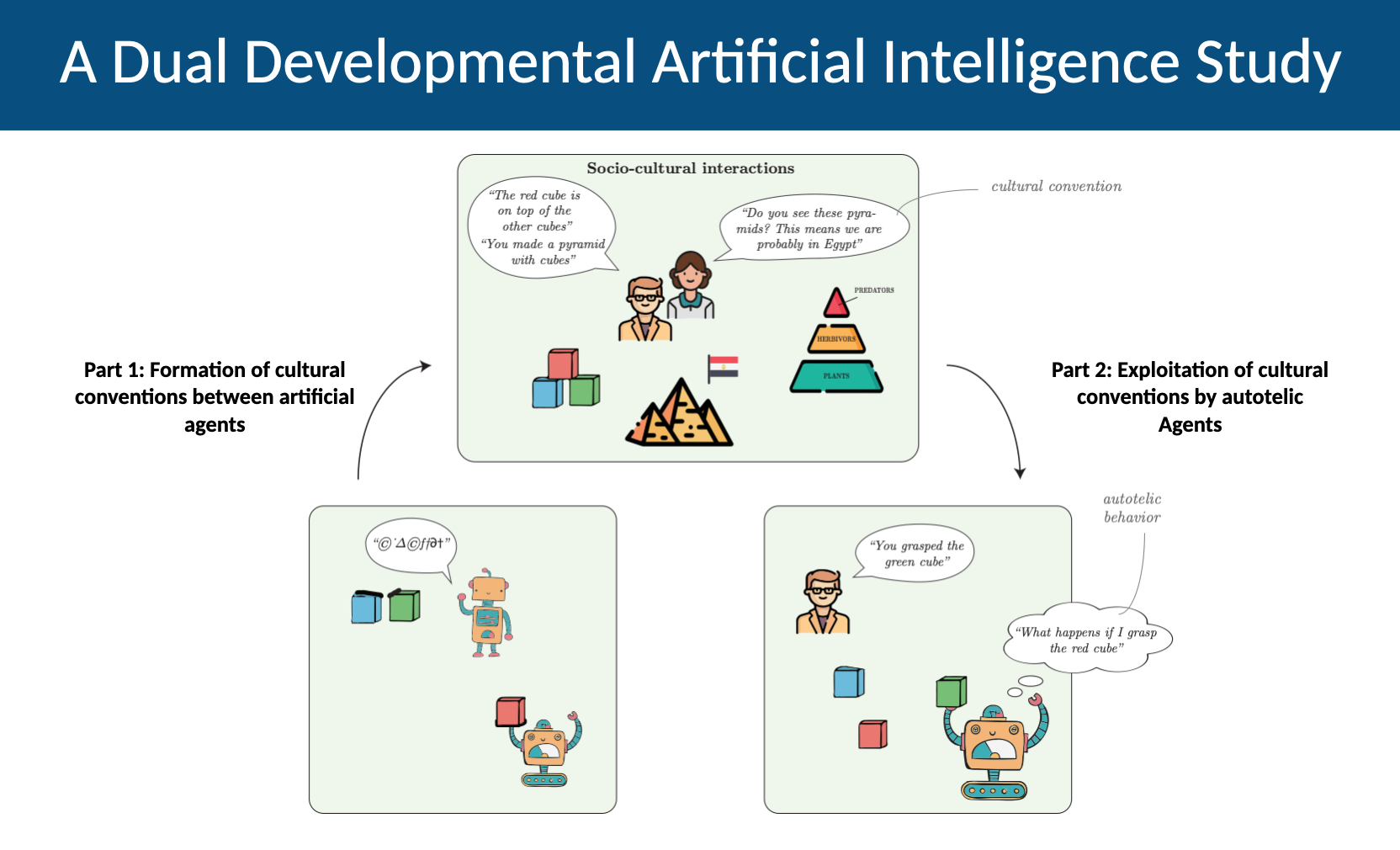News:
- March 2024: I joined the Digital Humanities Lab at EPFL as a postdoc, working on the synergies between Digital Cultural Heritage and Large Language Models.
- May 2023: I defended my Ph.D. thesis entitled "Towards Social Autotelic Artificial Agents - Formation and Exploitation of Cultural Conventions in Autonomous Embodied Artificial Agents".
Short Bio
I’m a research scientist at InstaDeep, where I develop large-scale, multi-modal foundation models—combining deep learning with structured biological data. Previously, I was a postdoctoral researcher at the Digital Humanities Lab at EPFL, exploring how Large Language Models can access and reason over historical and cultural sources not indexed on the web.
I earned my Ph.D. at the Flowers Lab (Inria), where I worked with Clément Moulin-Frier and Pierre-Yves Oudeyer on Developmental AI. My research focused on how artificial agents can self-organize cultural conventions and leverage them to autonomously generate and pursue their own goals—becoming autotelic.
Before my Ph.D., I worked in Natural Language Processing at BNP Paribas' innovation lab in New York. My academic background includes MSc degrees in Machine Learning (ISAE-Supaero) and Mechanical Engineering (EPFL).
Publications
Talks
Blog Posts
Summary: Humans have an outstanding ability to teach and learn form each other without relying on pre-established communication protocol (not even expressing rewards). Could machine do the same? In this blog post we propose a new interactive learning paradigm to investigate this question.
Summary: This blog post presents a supra-communicative view of language and advocates for the use of language as a cognitive tool to organize the cognitive development of intrinsically motivated artificial agents. We go over studies revealing the cognitive functions of language in humans, cover similar uses of language in the design of artificial agents and advocate for the pursuit of Vygotskian embodied agents - artificial agents that leverage language as a cognitive tool to structure their continuous experience, form abstract representations, reason, imagine creative goals, plan towards them and simulate future possibilities.

